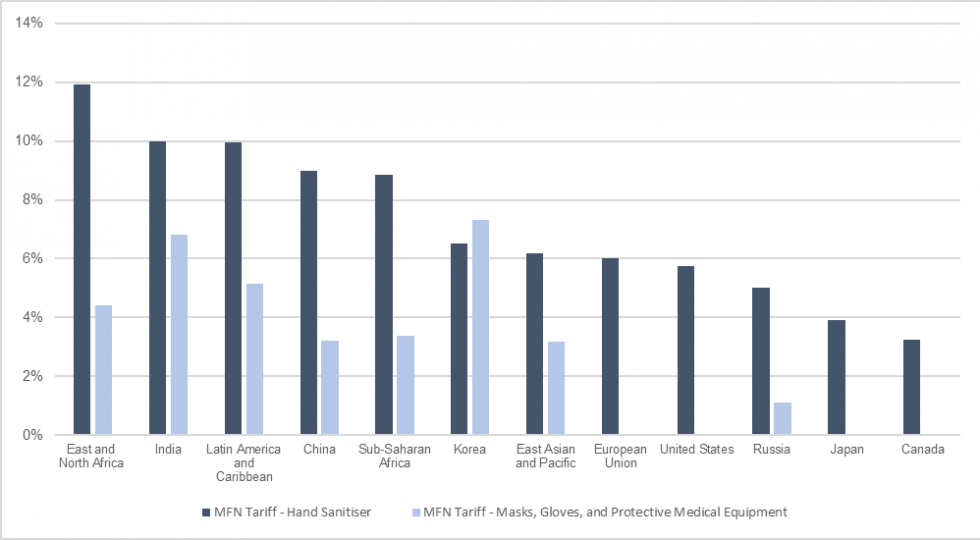Trade Policy and the Fight Against the Coronavirus


Oscar Guinea
Senior Economist, European Centre for International Political Economy (ECIPE) and former UNU-CRIS Intern.

Iacopo Monterosa
Research Assistant, European Centre for International Political Economy (ECIPE)
23 March 2020 | #20.7 | The views expressed in this post are those of the authors and may not reflect those of UNU-CRIS.
This post was originally published on the ECIPE blog.
The economic impact of the coronavirus or COVID-19 will be dramatic and long-lasting. Governments across the world have put in place extraordinary economic measures to support their health systems and cushion the blow of a plunge in demand across the economy. At the EU level, there have been calls to relax the fiscal rules, sharing medical equipment and avoid further fragmentation of the single market after Germany and France blocked the export of medical supplies.
But what can trade policy do to support the fight against the Coronavirus?
Governments should get rid of the restrictions and tariffs that delay the purchase of medical equipment and make them more expensive. Products such as masks, medical gowns, gloves and protective glasses should pay no import tariff. Unfortunately, this is not the case and many of these products face substantial tariffs. The figure below shows import tariffs for hand sanitiser, and masks, gloves, and protective medical equipment across the world.

Figure 1: Import tariff (Most Favourable Nation) for hand sanitiser, and masks, gloves, and protective medical equipment
Source: World Integrated Trade Solutions (MFN Tariff for 2018, HS Codes: 380894 and 901890 )
Eliminating these tariffs will have several positive effects. First, it will send a strong signal that governments consider foreign manufacturers an equal partner in their efforts to tackle this crisis. Second, it will enhance the profitability of the companies producing these goods which will encourage further investments. And thirdly, as the current situation is likely to carry on for some months, eliminating these tariffs and keeping markets open, will give confidence to foreign companies and entrepreneurs willing to invest in equipment to produce these goods. In turn, an increase in supply will contribute to resolving the severe shortage of medical equipment currently faced by some countries.

Rather than closing markets or looking inwards to support your own domestic producers, we need to facilitate trade to encourage domestic and foreign producers delivering the additional medical products and equipment needed to fight this pandemic. Eliminating import tariffs and non-tariff barriers on these goods will help our health system to receive these most-needed medical products sooner and at a lower price. We will all benefit from this measure. Countries like the US are already following this advise, and have taken some measures to lower their tariffs on a number of medical items coming from China. Other countries should follow suit.
More on the coronavirus in the Connecting Ideas series:
What Can the Coronavirus Teach Us About Regional Integration in Health?
Yes, Crises Do Happen: A Plea for Feeling More Vulnerable After COVID-19
When China Sneezes, Asia Catches a Cold
